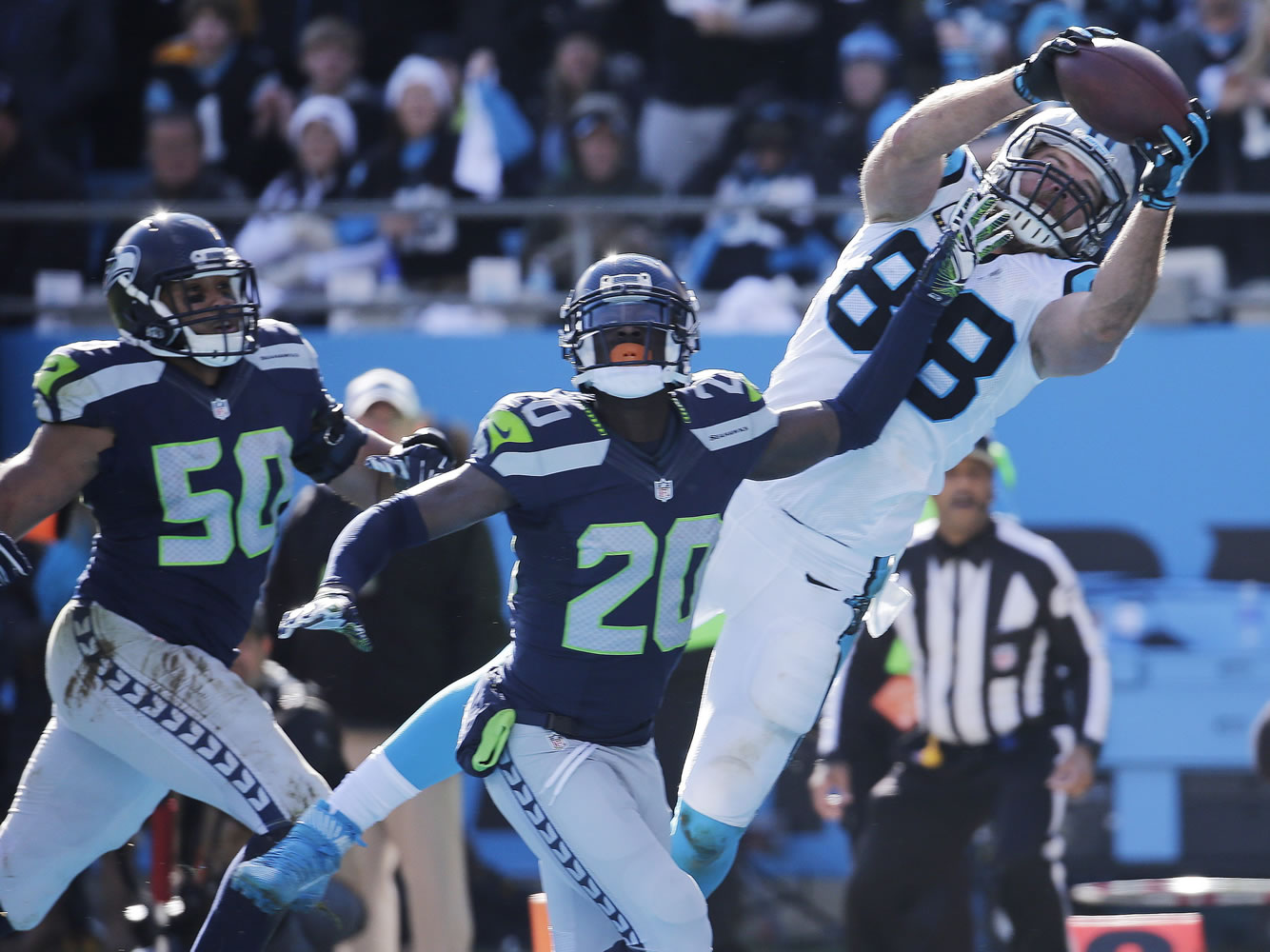CHARLOTTE, N.C. — The mistakes piled up quickly. So did Carolina’s lead.
And that left the Seattle Seahawks to spend the rest of Sunday’s divisional playoff game desperately trying to recover from a horrendous start.
This was hardly the way the two-time NFC champions could have imagined their season would end.
The confident, hard-hitting and physical bunch with a knack for escaping tough spots and big holes fell behind 31-0 in the second quarter after surrendering huge plays, committing turnovers and struggling to find a rhythm.
A second-half comeback made it closer, but the Seahawks never made up that margin and fell 31-24 to the Panthers. And there were no easy answers afterward about how it all went wrong so quickly.
“No such thing as coming out flat,” defensive end Michael Bennett said. “They played better than us. I know you guys are looking for a reason why we lost the game. We just lost the game.
“They played better than us in the first half, we played better than them in the second half. You play against great teams like that, you can’t afford to have mental mistakes. You can’t not score. You cannot give up touchdowns when you play against teams like that.”
Or, as safety Earl Thomas III put it: “We just got in our own way early.”
Regardless, this was a team that had expected much more. Sure, they came in as the No. 6 seed and were visiting a Carolina team that had rolled to 15 regular-season wins — including a comeback win in Seattle in Week 6 — behind MVP candidate Cam Newton but they also knew they had the experience and confidence to make a third straight trip to the sport’s biggest weekend.
Yet it took one play to find out things would be different Sunday on the road.
On the game’s first offensive snap, Panthers running back Jonathan Stewart, back from a three-game absence with a foot injury, burst right through the heart of the Seattle defense and sprinted 59 yards before Richard Sherman dragged him down from behind.
Three plays later, Stewart scored from 4 yards to make it 7-0 just 2½ minutes in.
“We misfired early on that first big run,” Seattle coach Pete Carroll said. “That was a big shock, that we’d give them (the ball) inside the 20-yard line right off the bat.”
Things only got worse. After Marshawn Lynch’s first carry went for a 3-yard loss, Russell Wilson tried to throw to Lynch as he was taking a hit from Carolina’s Kawann Short and the ball went straight to linebacker Luke Kuechly for a 14-yard interception return for a touchdown and 14-0 lead.
By the time Newton found Greg Olsen for a 19-yard touchdown against two defenders with 6:26 left in the second quarter, Carolina had more points (31) than Seattle had total yards (17).
“When you’re down, a bunch of stuff is happening, the energy is very weird,” Thomas said. “Sometimes we were not ourselves out there.”
There would be no second straight huge rally, like a year earlier when the Seattle made a wild comeback from a 16-0 deficit to beat Green Bay in overtime in the NFC title game.
Wilson and the Seahawks scored 24 points against the conservative-running Panthers and still had a chance to tie it until Carolina’s Thomas Davis recovered an onside kick with 1:11 left that allowed the Panthers to run out the clock.
And while the Seahawks were quick to tout their second-half comeback bid, they also knew the game was ultimately decided in those opening minutes.
“It was 14-0 before you know it,” linebacker Bruce Irvin said. “Those guys came out fast, we came out flat and you can’t do that with a team of that caliber. They’ll make you pay, and they made us pay today.”




